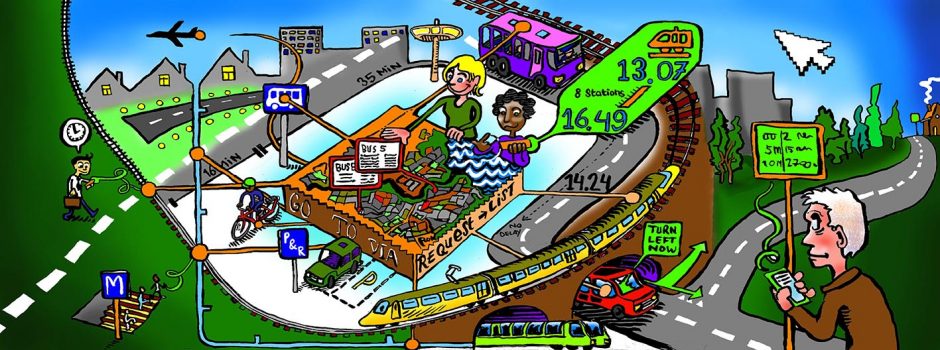Platform: MaaS Global
Coverage area: ‘Whim’, the platform’s mobile app will be launched in Helsinki in 2016. The owners intend to expand the use of the platform to other areas and countries in the near future.
Stakeholders:
- Company owners: the biggest single owners in MaaS Global with a 20 per cent interest are Transdev, a French transportation giant offering land, rail and passenger transport services and Karsan Otomotiv Sanayii and Ticaret AS, a leading car-industry family of Turkey. Sampo Hietanen holds a ten percent stake in the company. Other shareholders include InMob Holdings of Cyprus; Neocard; Korsisaari; GoSwift; MaaS Australia; Goodsign; IQ Payments; and Delta Capital Force.
- Local Transport providers
- Service providers (restaurants, grocery shops etc.)
Organisation and management: Privately owned company.
Source of funding: Private investors, Finish Funding Agency for Technology and Innovation. Eventually funding will rely on user-fees.
Initial investment: MaaS commenced operations on 1 February 2016 raising a total of EUR 2.2 million in its first call for funding from private investors and the Finnish Funding Agency for Technology and Innovation Tekes.
Development history: The company started to be operational in February 2016. The mobile application that offers MaaS services is to be launched in Helsinki in 2016.
Modes of transport included: taxi, bus, train, bike and car, all rented or shared
Service Features: MaaS concept relies on the idea that ‘the money lies on the freedom of mobility allowed by cars’ – that is something people are willing to pay for. MaaS intends to serve users as an alternative to owning a car however providing them with the freedom of movement offered by a private vehicle. It will work as a one-stop-shop combining options from different transport providers into a single mobile service that will offer users different mobility packages with monthly fees. The company’s business model involves providing services to clients rather than providing them with means to service themselves like journey planning platforms do. This assistance takes place with respect to 2 main components: ticket purchase and offering the transport option through mobility packages
Source of data: Transport providers
Data flow: Information supplied by transport providers is used to feed the MaaS platform creating trip options to users. The mobility packages are built through agreements between MAAS and transport providers: these providers grant access to their data/mobility services and MAAS buys these services to later resell to end users. Transport providers accept to grant MAAS access to their clients and services mainly because the company does not act as a regular intermediary taking a percentage of the ticket revenues, but simply buys them to resell to end user.
Open data policy: N/A
Continuity: Depends on the success of the business model
Miscellaneous: Transport providers understand that this way they lose contact with clients however they see that people are looking for one-stop shop options.
MaaS has a very critical view on governments participation on the development of mobility platforms. They see a great risky of non-continuity – platforms are created but not well kept or upgraded – public sector as entrepreneur is bad and should not be involved in this type of initiatives.
